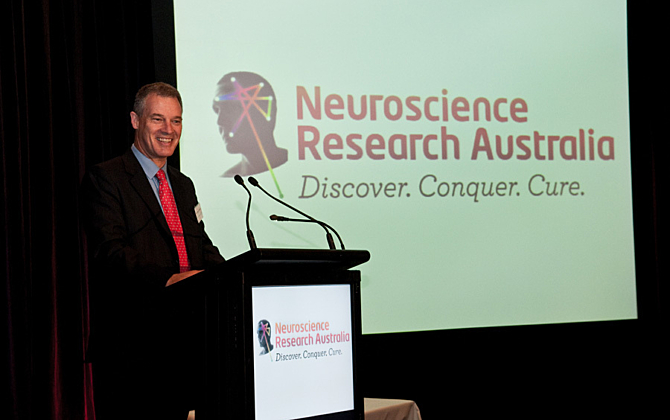Leading medical research institute, Neuroscience Research Australia, launched its new name and identity at Parliament House in Sydney today.
Neuroscientist and Executive Director of Neuroscience Research Australia, Professor Peter Schofield, said, “Our new name, Neuroscience Research Australia, better reflects the scope of the work we do and our ambitions for the future.”
“We strive to be leaders in neuroscience research and we draw researchers and participants from across the country. Our research also benefits all Australians.”
Neuroscience Research Australia started out as the Prince of Wales Medical Research Institute in 1993. With more than 260 researchers conducting research into diseases and disorders of the brain and nervous system, it is one of the largest medical research institutes in the country.
Neuroscience Research Australia is recognised globally for its research in Parkinson’s and Alzheimer’s disease, psychiatric disorders such as schizophrenia, spinal cord injury, diseases of the nervous system such as Motor Neurone Disease, and preventing falls in the elderly.
“Unlike many of our other organs and systems, our brain and nervous system and the disorders that affect them are still very much a mystery. Our goal is to find out what causes these diseases and to discover treatments – and ultimately cures,” said Professor Schofield.
In conjunction with the launch of their new identity, Neuroscience Research Australia unveiled the results of a national survey canvassing the opinion of Australians on attitudes towards brain health and disease.
“Australians are very aware that we are facing a future where more people have brain diseases like dementia than ever before,” said Professor Schofield.
“In our survey, we found that 70% of people knew someone with a brain disease, illness or injury. Many people are worried that they or someone they love will lose their brain health – and not just older people are worried, but younger people as well.”
“We believe our work is crucial because our research covers illnesses that touch the lives of many Australians,” said Professor Schofield. “We’re very excited about the future of neuroscience research in Australia and our role in it.”




